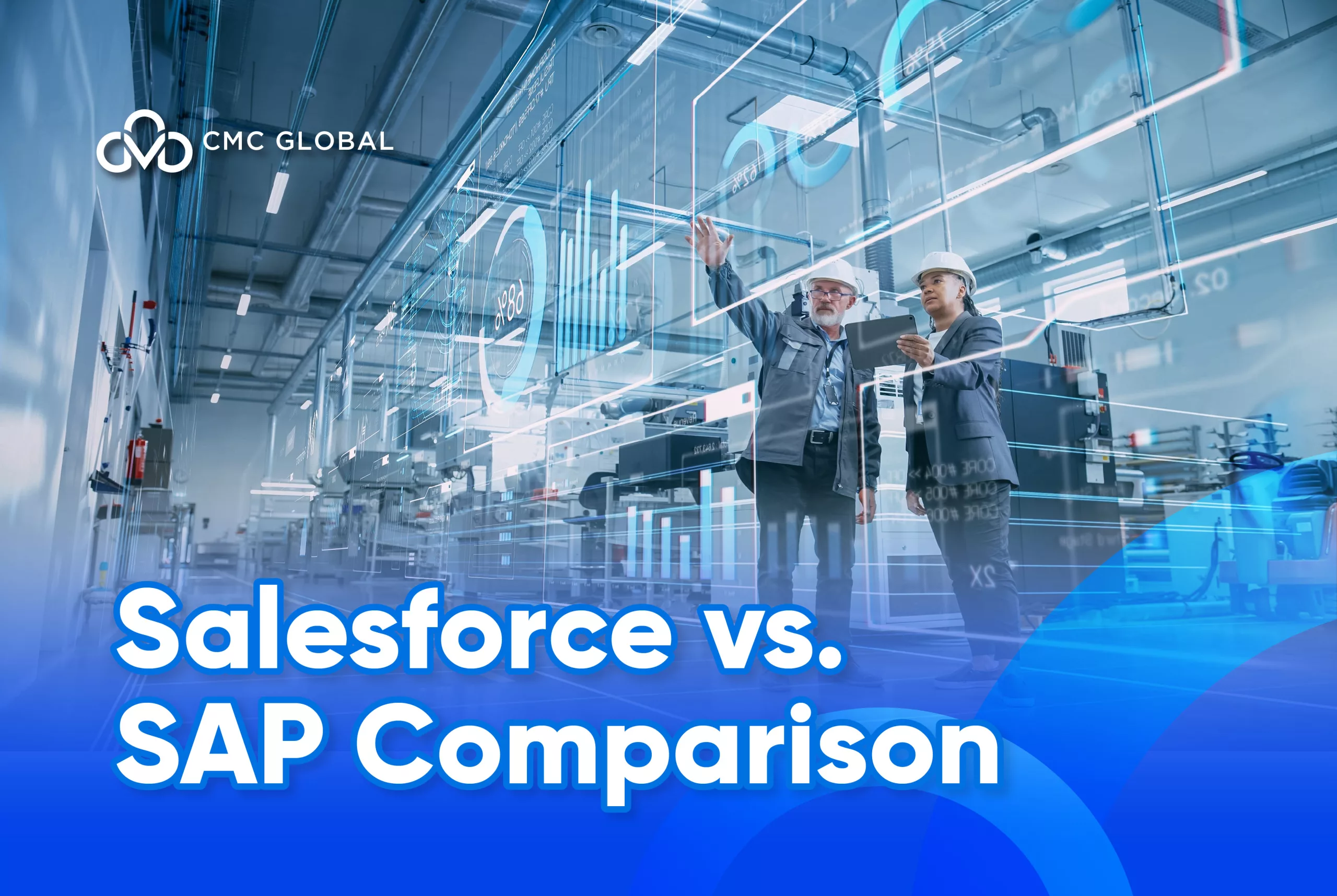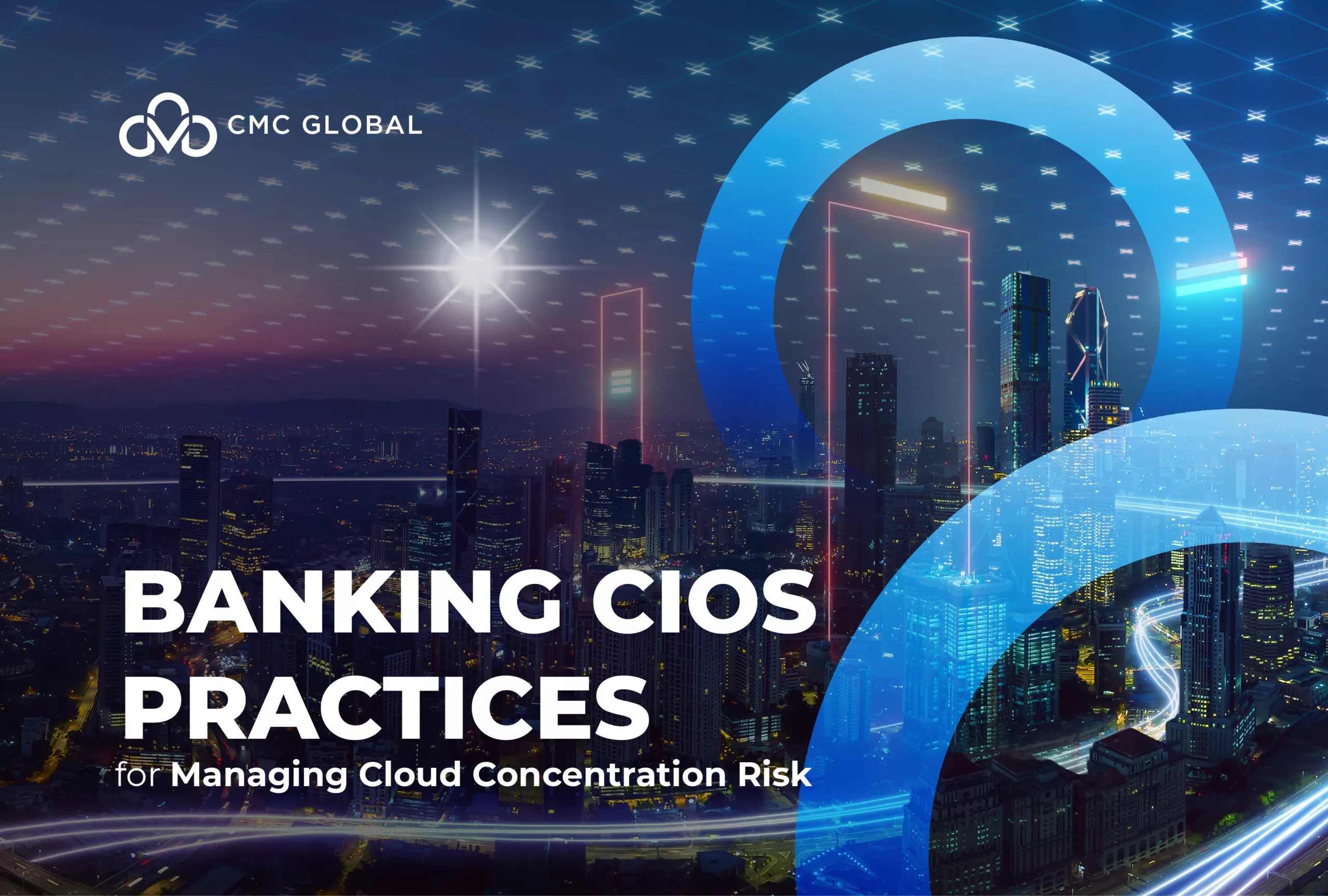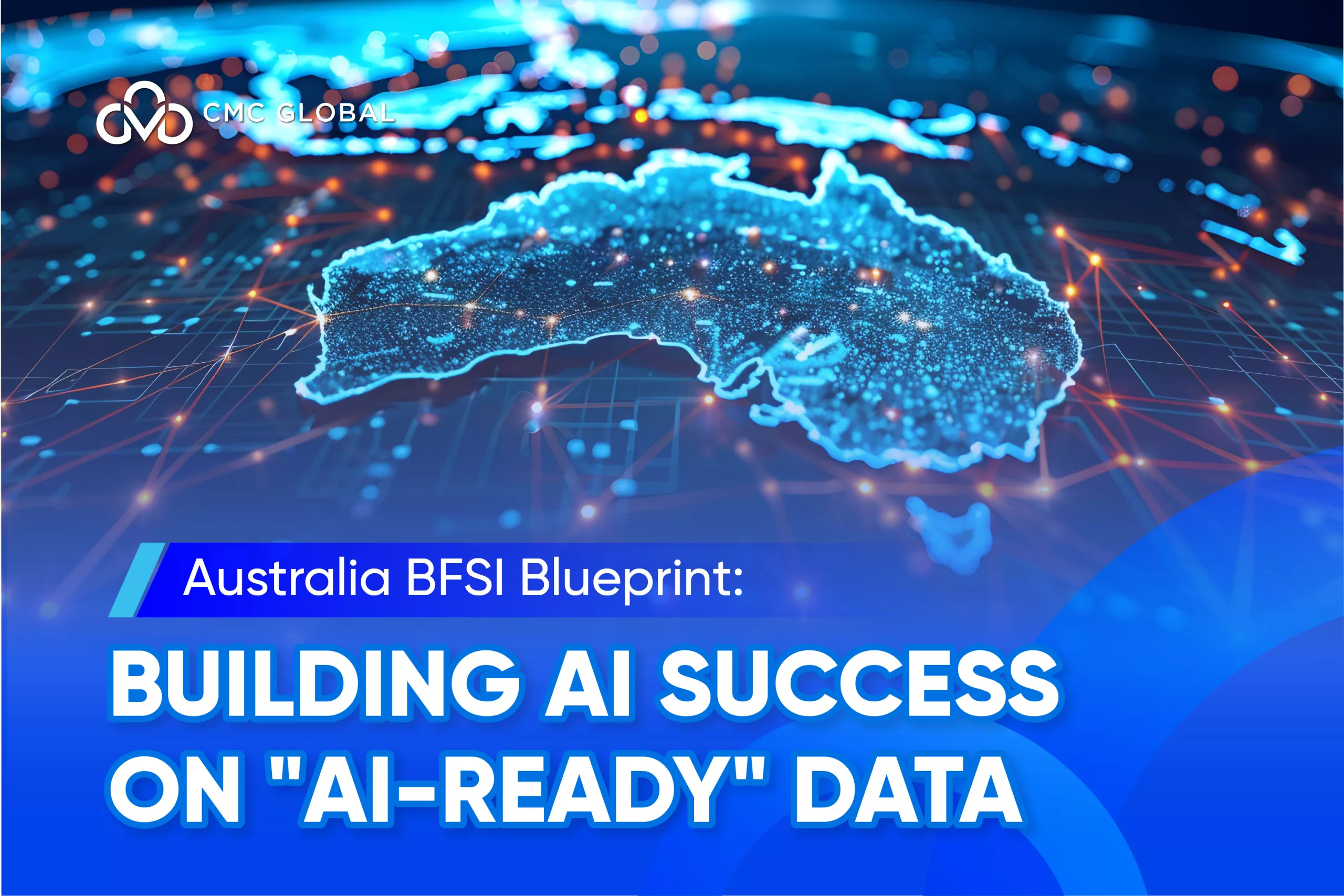SAP and Salesforce provide both stand-alone and integrated customer relationship management (CRM) solutions designed to improve customer experience. Their features encompass sales, marketing, and service automation, streamlining processes for your teams to boost revenue more efficiently. Explore our comparison of SAP and Salesforce to find out which CRM software aligns better with your business needs.
Salesforce vs SAP: At A Glance
SAP is an enterprise resource planning (ERP) system that includes a customer relationship management (CRM) feature to manage customer interactions, while Salesforce focuses primarily on CRM functions with comparable capabilities.
For large businesses, both CRM solutions often benefit from additional tools to achieve peak performance.
However, in this Salesforce vs. SAP comparison, we highlight that Salesforce’s Sales Cloud offers strong, independent performance with advanced CRM capabilities and easy customization options. In contrast, SAP’s CRM feature is simpler, making it ideal for those already using SAP’s ERP system or looking to centralize daily business activities.
Read more: An Ultimate Guide To Salesforce CRM
Salesforce vs SAP Difference in Features and Functionality
Salesforce and SAP are both robust CRM solutions with comparable features and capabilities. Take a closer look at their CRM functions to see which one aligns best with your business requirements.
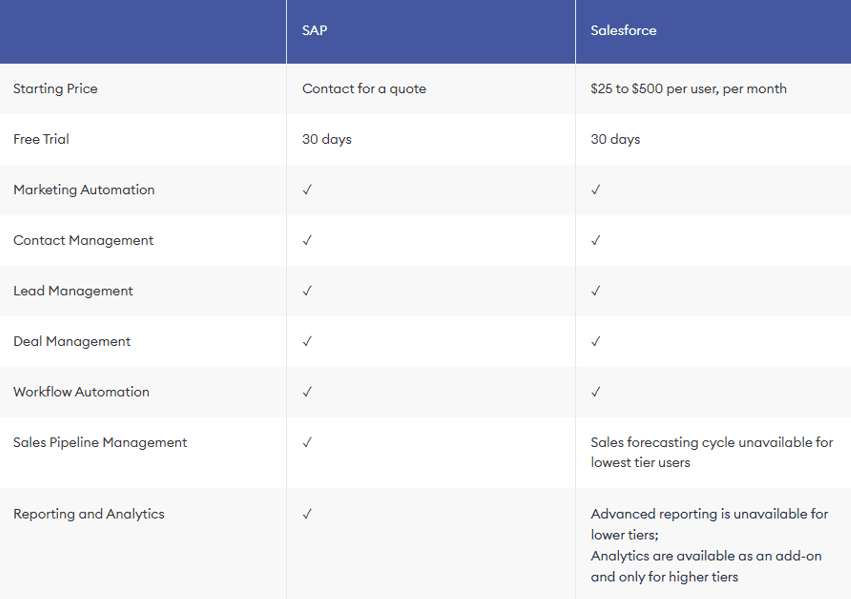
Marketing Automation
Salesforce and SAP employ AI to streamline marketing efforts, focusing on lead generation and customer engagement. These tools allow you to group customers and audiences according to their preferences and behaviors, delivering tailored messaging that resonates. Both CRM platforms are compatible with Gmail and Outlook, though Salesforce provides more advanced marketing capabilities and greater integration flexibility. It supports outreach to up to 75,000 contacts simultaneously across various channels like X (previously Twitter), Google, and Meta, broadening your engagement.
Contact Management
Salesforce and SAP CRM support managing contacts and tracking customer interactions across channels. They retain essential contact details and enable the monitoring of conversations on multiple platforms. SAP, however, excels in SMS management, offering template creation and the ability to send mass SMS messages to specific groups.
Workflow Automation
Both CRM platforms offer collaborative tools for smooth teamwork. You can tag team members in posts, share files, assign tasks, and more. Salesforce’s Customer 360, for instance, integrates with Slack, merging customer interaction and team collaboration on one platform. Additionally, Salesforce connects with communication tools like Snowflake and Google BigQuery, making it easier to share live marketing insights and keep tasks up-to-date.
However, while Salesforce provides advanced workflow and CRM automation capabilities, they are only available in higher-tier plans. Also, some features like geotagging require external integration with Salesforce, whereas SAP includes these features natively.
Sales Pipeline Management
SAP and Salesforce support sales initiatives, from marketing campaigns to referral programs, offering a unified view of your entire sales pipeline. This functionality enables you to monitor sales activities and assess performance by customer or segment. Salesforce adds value with its AI-driven forecasts, showing both past trends and projections for future sales, though these sales forecasts aren’t accessible on the entry-level plan.
Lead and Deal Management
Both CRM platforms offer lead distribution and scoring tools, helping you tailor interactions based on each lead’s journey stage. SAP goes a step further by ranking leads, identifying high-value prospects from campaigns and social media, and logging every deal activity. This includes assigning roles and providing team members with a live view to follow up on specific actions.
Additionally, SAP’s Kanban Board presents a real-time view of deal stages, while its opportunity management feature helps detect trends and forecast deal closures. Salesforce, meanwhile, sends timely reminders to your team to keep deals on track, and its AI-driven insights guide the next best engagement steps.
Reporting and Analytics
Salesforce CRM offers real-time visibility into customer data and interactions. Users can access reports in various formats and customize them to visualize each customer’s or prospect’s purchasing journey in their preferred way. Similarly, SAP CRM provides users with reports compiled from emails, calls, and other communication channels, allowing for dashboard customization and editing.
However, SAP excels in generating email reports, while Salesforce is more effective at analyzing calls and deals. It’s important to note that advanced reporting features are limited to higher-tier subscribers, and the AI and customer analytics capabilities are available only as add-ons for the top subscription levels.
Cost of Salesforce vs SAP
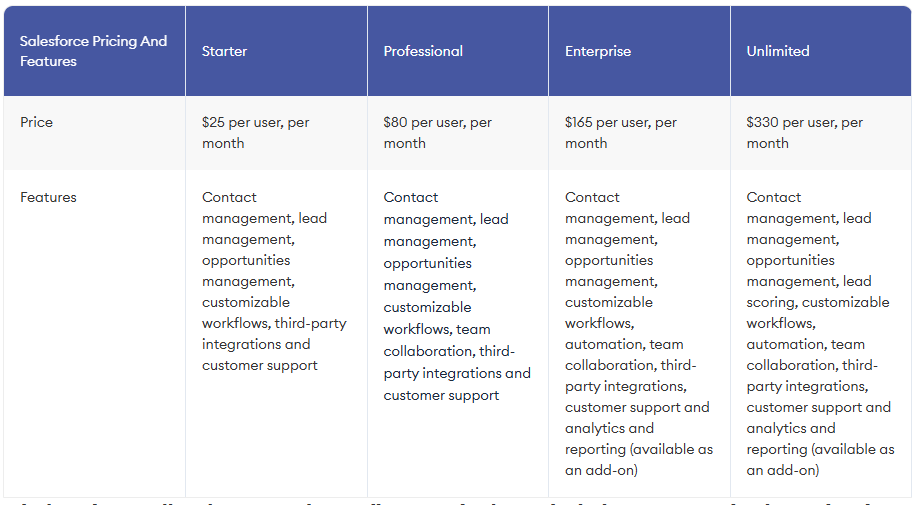
Salesforce does not provide a free version, but it does offer a 30-day free trial that can be extended through a product demonstration. The CRM software requires a minimum of one-year contract. Alternatively, you can choose Salesforce Unlimited+, which includes additional features like performance management and team collaboration through Slack, along with options for package customization.
Read more: Understanding Salesforce Pricing: A Simple Breakdown
SAP’s CRM pricing approach is comparable to Salesforce, encompassing sales, marketing, customer service, customer data, and e-commerce solutions within its customer experience offerings. However, specific pricing plans are not published; you will need to reach out to the SAP sales team for a customized quote based on your business requirements. SAP CRM users also enjoy a 30-day free trial.
The bottom line
Both Salesforce and SAP are groundbreaking tools. They offer unified platforms that integrate sales, commerce, marketing, service, and development, enabling the management of an entire enterprise with minimal effort. While automation and unification are not mandatory, they significantly simplify building client trust and delivering outstanding experiences through Salesforce’s solutions, platforms, and clouds.
As a Salesforce consulting partner, CMC Global assists clients in optimizing their Salesforce implementations by providing tailored solutions, expert guidance, and seamless integrations. Their services enhance business processes, drive efficiency, and maximize the return on investment in Salesforce technology.
If you want to learn more or have any questions, feel free to contact us.
